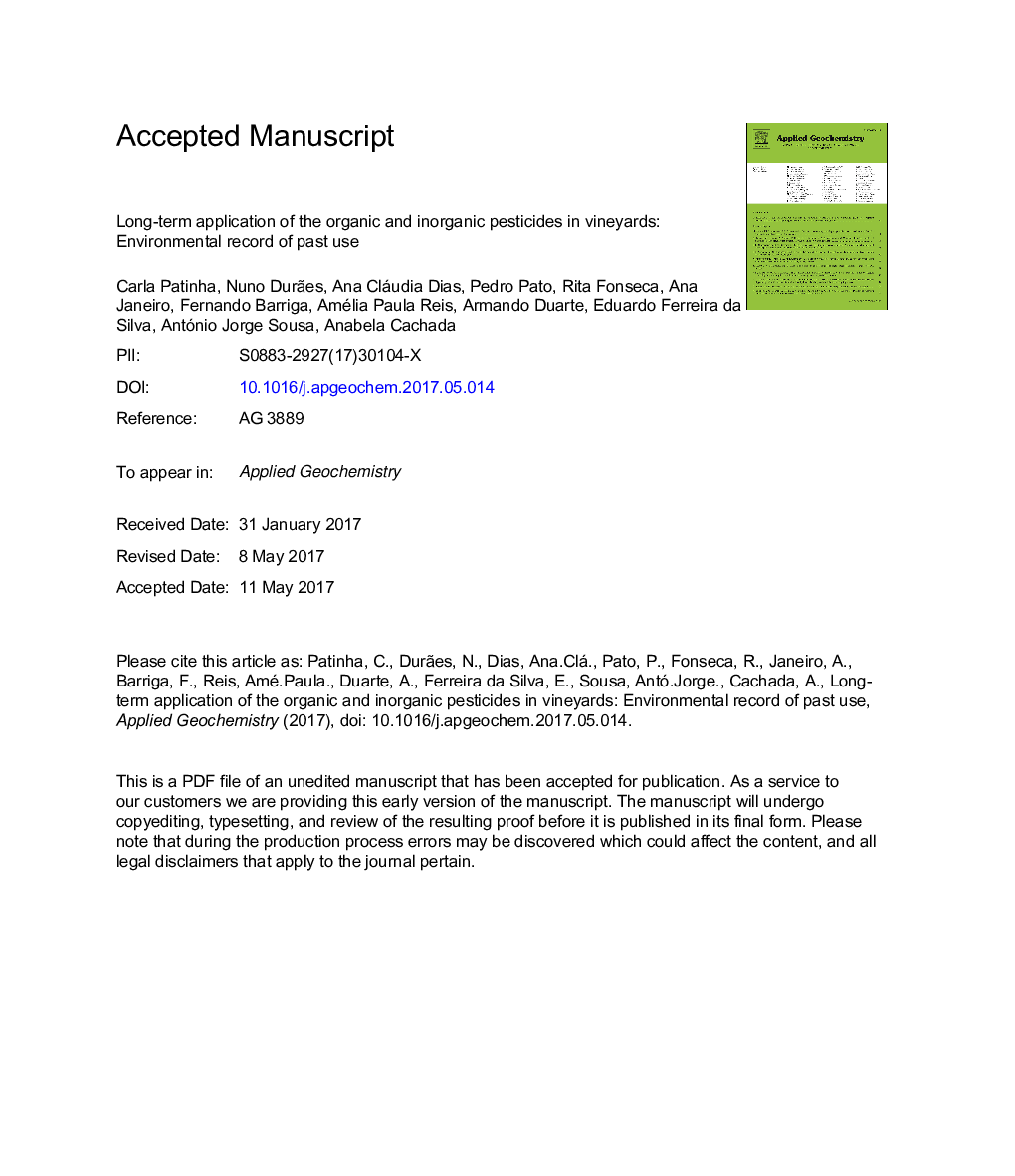| Article ID | Journal | Published Year | Pages | File Type |
|---|---|---|---|---|
| 8863229 | Applied Geochemistry | 2018 | 36 Pages |
Abstract
Areas such as Douro Demarcated Region (Portugal), where vineyards are frequently located on steep slopes of narrow valleys, can be particularly sensitive to runoff and erosion processes. These particular conditions are expected to enhance the transport of pollutants, acting as a potential source of contamination to freshwater systems. The intense vine cultivation in this region includes decades of pesticides application, that have resulted in the accumulation of these chemicals and its degradation products in the vineyards soils and sediments. Residues of several pesticides related to agricultural activities were found in soils, with older vineyards showing higher levels of Cu and banned insecticides (such as DDT). The metabolite 4,4-DDE was the compound found at higher levels in soils and in sediments. The relatively high levels in more recent sediments suggest that soils are still a source of contamination. Levels of currently used pesticides were low, which is related with their physicochemical properties, the application period, and climacteric conditions.
Keywords
Related Topics
Physical Sciences and Engineering
Earth and Planetary Sciences
Geochemistry and Petrology
Authors
Carla Patinha, Nuno Durães, Ana Cláudia Dias, Pedro Pato, Rita Fonseca, Ana Janeiro, Fernando Barriga, Amélia Paula Reis, Armando Duarte, Eduardo Ferreira da Silva, António Jorge Sousa, Anabela Cachada,
